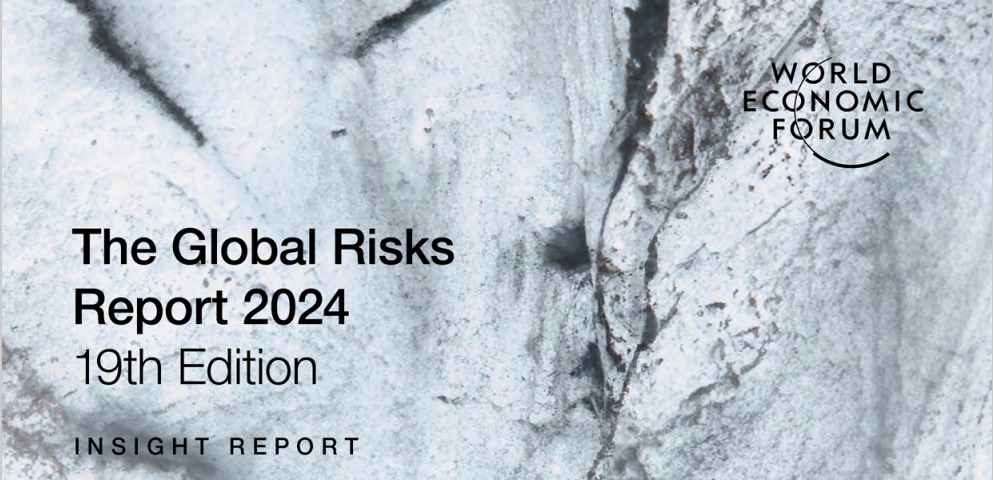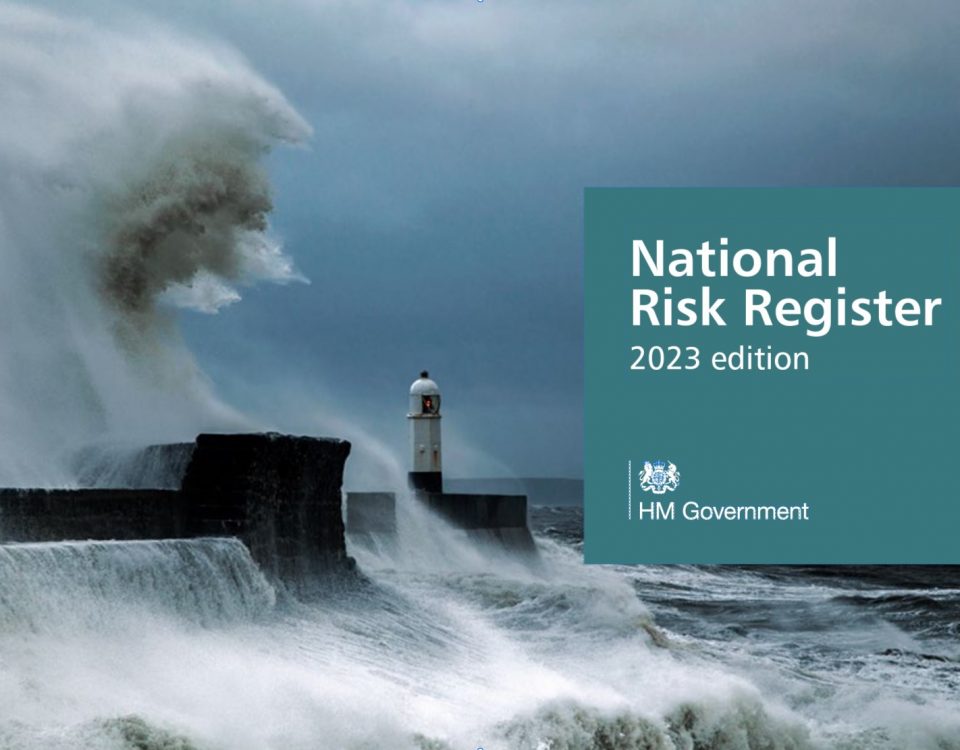
Kent Invicta Chamber of Commerce Awards 2023
5th January 2024
WEF Global Risks Report 2024
“The Global Risks Report explores some of the most severe risks we may face over the next decade against a backdrop of rapid technological change, economic uncertainty, a warming planet and conflict. As cooperation comes under pressure, weakened economies and societies may only require the smallest shock to edge past the tipping point of resilience.”
AI-driven misinformation and disinformation have immediately established themselves as the number one short-term risk in the World Economic Forum latest Global Risks Report, joining extreme weather, social polarisation, and cyber risk as leading near-term concerns. Environmental risks, such as extreme weather and changes to Earth systems, dominate longer-term risk assessments; however, misinformation and disinformation also represent one of the primary threats outside these issues.
The World Economic Forum Global Risks Report 2024, based on an international survey of almost 1,500 global risks experts, policymakers, and industry leaders conducted last September, offers an alarming outlook for global issues over the next two years that only worsens when considering more distant projections.
The methodology of the Global Risks Report, supported by the Global Risks Perception Survey (GRPS), involves gathering insights on global risks from a wide range of experts. The 2023-2024 GRPS collected data from September to October 2023, receiving responses from 1,490 professionals in academia, business, government, international communities, and civil society. “Global risk” is an event or condition that could significantly harm global GDP, population, or natural resources.
Key components of the GRPS 2023-2024 include:
Risk Landscape: This section assesses the severity of global risks over one, two, and ten years, helping to understand the development of individual risks over time and identify major concerns.
Consequences: It asks respondents to consider the range of impacts of a risk, highlighting relationships between global risks and the potential for compounded crises.
Risk Governance: This part focuses on reflecting on various approaches for global risk reduction and preparedness.
Outlook: It predicts the evolution of key elements underpinning the global risk landscape.
In addition to GRPS data, the report also utilises the World Economic Forum’s Executive Opinion Survey (EOS), which gathers the perspectives of over 11,000 business leaders in 113 economies on the most severe threats to each country in the next two years. This data provides insight into local concerns and potential regional manifestations of global risks.
The WEF warns that global cooperation on urgent issues could become limited and calls for innovative approaches and solutions from all stakeholders to tackle some of the major threats.
Misinformation and disinformation appeared in the World Economic Forum’s (WEF) annual Risk Survey and quickly became the number-one risk over two years. Furthermore, voters ranked this risk second most likely to cause global crises by 2024, while it ranked fifth-biggest over ten years.
The 2024 World Economic Forum report, in partnership with Zurich Insurance and Marsh McLennan, revealed various emerging risks across five categories – economic, environmental, geopolitical, societal and technological. Extreme weather events took second place, followed by societal polarisation third, cyber insecurity fourth and interstate armed conflict in fifth place.
Extreme weather topped the 2024 predictions for extreme conditions, followed by AI misinformation and disinformation, political or societal polarisation, cost-of-living crises and cyberattacks.

Saadia Zahidi, managing director of the WEF, told the media that climate risks remain “very much the number one concern”. Extreme weather was seen as the significant risk, followed by a critical change to Earth systems (a new risk option in this survey) followed by biodiversity loss, natural resource shortage, misinformation, and disinformation to complete her top five list.

Zahidi also noted that participants in the WEF survey entered 2024 with a “fairly pessimistic” global outlook for the next two years that gets “progressively worse” over the longer term. While only 30% of experts believed there was an elevated risk of global catastrophes within two years, this figure increased dramatically to nearly two-thirds after ten years – a stark difference from last year when longer-term optimism prevailed.
The WEF noted concerns over an ongoing cost-of-living crisis, AI-driven misinformation, and social polarisation “dominated” the short-term risk outlook.
“The nexus between falsified information and societal unrest will take centre stage amid elections in several major economies that are set to take place in the next two years. Interstate armed conflict is a top five concern over the next two years. With several live conflicts underway, underlying geopolitical tensions and corroding societal resilience risk are creating conflict contagion,” it warned.
Carolina Klint, chief commercial officer for Europe at Marsh McLennan, described the potential impact of misinformation on global elections as “significant.” She warned that it could undermine elected governments’ legitimacy and threaten democratic processes, resulting in further social polarisation, riots, strikes or even intrastate violence.
Zahidi from the WEF agrees that misinformation must be taken seriously as more parts of the world vote in elections over the next few years.
“The speed with which some of that synthetic content can be created and that it is not tagged or watermarked in many parts of the world, combined with the fact that most people are not educated at present to the risks of some of this synthetically generated misinformation, is a very potent mix. When you throw on top of that a situation where there are already a lot of economic grievances and other things, you are looking at a very difficult combination going into elections,” she said.
Klint noted that with the rapid spread of user-friendly interfaces like ChatGPT and larger AI models to manipulate public opinion and synthetic content being produced to manipulate it further, it should come as no surprise that misinformation and disinformation rank among the top short-term risks in a recent World Economic Forum survey.
AI offers businesses numerous advantages, yet companies must consider its societal, economic and security implications before employing the technology.
She warned that artificial intelligence breakthroughs would dramatically alter organisations’ risk profiles, leaving many unable to respond effectively to threats such as misinformation, disintermediation and strategic miscalculation. “The success of this will depend on regular testing, updating, verification and lots of upskilling and training. It is the only way we can prevent strategic and tactical miscalculations by AI that could lead to catastrophic errors, reputational harm or even significant liabilities.”
The WEF Global Risks Report 2024 warns of persistent economic uncertainty and widening economic and technological gaps over the coming years.
“Lack of economic opportunity is ranked sixth in the next two years. Over the longer term, barriers to economic mobility could build, locking out large segments of the population from economic opportunities. Conflict-prone or climate-vulnerable countries may increasingly be isolated from investment, technologies and related job creation. In the absence of pathways to safe and secure livelihoods, individuals may be more prone to crime, militarisation or radicalisation,” It continues.
This report encourages leaders to reevaluate how they address global risks, with particular attention paid to building safeguards against emerging disruptive risks, such as agreements addressing AI in conflict decision-making.
However, this report also explores alternative forms of action that do not require cross-border cooperation. It outlines that these could include strengthening individual and state resilience through digital literacy campaigns on misinformation/disinformation or encouraging greater research/development on climate modelling technologies that could accelerate the energy transition.
John Scott, head of sustainability risk at Zurich Insurance, believes collective and coordinated cross-border actions can play a part in helping the world rise to its many challenges; however, localised strategies are necessary to lessen the effects of global risks.
“While there are various approaches to managing risk, there is no single magic bullet solution,” according to Scott. Instead, we need to combine all these different approaches – local strategies, collaboration or international cooperation initiatives, and individual or collective action efforts – into one holistic plan for effective risk management.
“But if we do all of that, we can move the needle. The good news is that within this fractured and fast-moving risk landscape we see, there is an opportunity to address these risks for all of us. However, the fact is we are all going to have to take these actions,” he added.
Zahidi made sure to emphasise the fact that positive action is entirely possible despite what was suggested in the WEF report.
“While this report paints an alarmist picture, it should not be taken as an authoritative prediction for our future,” she stated before WEF’s annual meeting in Davos next week. She highlighted structural shifts underway but noted that much decision-making lies within different stakeholders – calling attention to that decision-maker role where “effort should be expended.”




